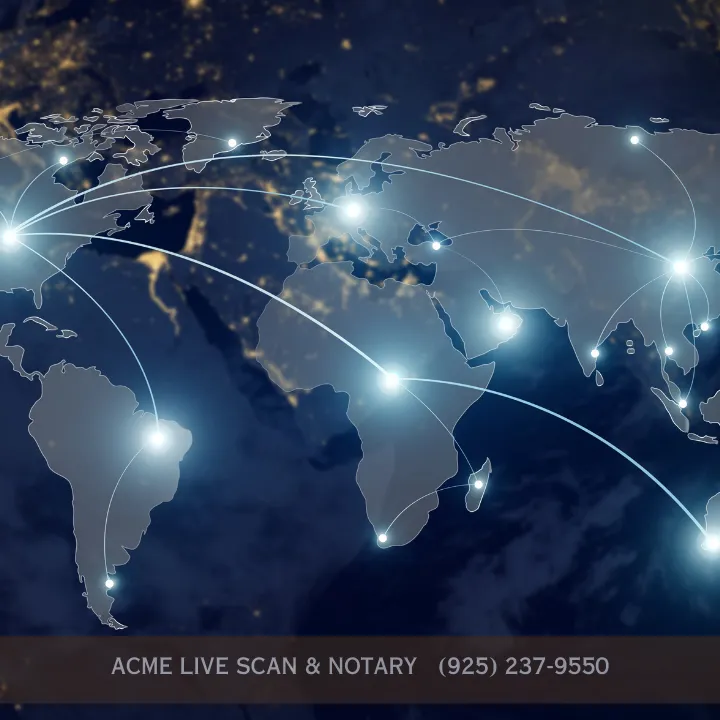Notary Matters

How can an expat obtain a notarization in the United States
How can and Expat obtain a notarization in the United States
Navigating life as an expat of the United States can be both thrilling and challenging. From adapting to cultural differences to managing everyday tasks, there’s a lot on your plate. One of those tasks might include obtaining notarization for important documents—a process that can often feel daunting, especially when you're unfamiliar with local laws and regulations.
Notarization is crucial for many legal transactions, but what happens when you’re away from your home country? How do you ensure that your documents are valid and recognized? With the rise of technology, options like virtual notary services and remote notarization have emerged, making this process smoother for expats. Let’s dive into how you can navigate these challenges effectively while ensuring all necessary paperwork is handled correctly.
Challenges for Expats in Obtaining a Notarization
Expats often face a unique set of challenges when it comes to obtaining notarization in the U.S. One significant hurdle is understanding the varying state laws. Each state has its own requirements, which can be confusing for those unfamiliar with local regulations.
Language barriers can also complicate matters. If English isn't your first language, navigating legal jargon on documents might feel overwhelming. Miscommunication could lead to mistakes that delay processes or invalidate important paperwork.
Additionally, finding a notary public who understands your specific needs can be tricky. In some areas, there may be limited availability of notaries willing to assist expats, especially during peak times.
Time zone differences and geographical distance make scheduling an appointment even more challenging for remote workers living abroad. All these factors contribute to what can feel like an uphill battle just to get essential documents properly notarized.
Solutions for Expats to Obtain a Notarization in the United States
Expats can navigate the notarization process in the U.S. with some smart strategies. One effective solution is to use a virtual notary service. These platforms allow expats to connect with licensed notaries online, making it easier to get documents signed without physical presence.
Another option is mobile notary services. Many companies specialize in traveling to clients’ locations, providing convenience for those who may have difficulty reaching a traditional office.
Additionally, checking state-specific regulations can streamline the process. Each state has its own rules about what constitutes valid notarization and what types of identification are acceptable.
Leveraging technology remains key as many states now permit remote notarization under specific conditions. Understanding these laws ensures that expats choose an approach that meets their needs while remaining compliant with local guidelines.
Step-by-Step Guide for Obtaining a Notarization in the U.S.
Obtaining notarization in the U.S. can be straightforward if you follow a few key steps.
Start by identifying the document that needs notarization. This could be anything from a power of attorney to an affidavit.
Next, contact ACME LIVE SCAN & NOTARY to help facilitate a virtual notarization. We will help find the right notary public to help you with notarization.
Prepare your documents and ensure they are complete before meeting with the notary. Most importantly, bring valid identification—typically a driver’s license or passport is required.
Once you're set, meet with the notary either in-person or through remote notarization platforms. The notary will witness your signature and stamp the document accordingly.
Afterward, keep copies of the notarized documents safe as proof of their authenticity.
Understanding the Differences Between State Requirements
Navigating the notarization process in the United States can be complex, especially for expats. Each state has its own set of rules and regulations governing notarization.
For instance, some states require notaries to complete specific training or certification before they can authenticate documents. Others have minimal requirements, making it easier for anyone to become a notary.
Additionally, certain states permit remote notarization while others do not. This discrepancy means that using an experienced notary public facilitator will help navigate these complexities when seeking virtual notary services.
It's also important to recognize variations in acceptable forms of identification. While many states accept a driver's license or passport, others may have stricter guidelines on what constitutes valid ID.
Understanding these differences is crucial for expats aiming to ensure their documents are properly notarized without delays or complications. All of these variations an complexities are taken inter consideration when working with ACME LIVE SCAN & NOTARY. We find the correct notary that fits your situation so that everything is legal and compliant.
Common Documents That Require Notarization for Expats
Expats often find themselves needing notarization for various important documents. These can include powers of attorney, which grant someone the authority to act on your behalf in legal matters.
Another common document is the affidavit. This sworn statement may be required for legal proceedings or immigration purposes.
Real estate transactions also frequently necessitate notarized documents—think deeds and mortgage agreements. If you're purchasing property abroad or managing investments back home, having these properly notarized is crucial.
Additionally, expats might need to notarize their academic transcripts or diplomas when applying for jobs overseas. Verification of credentials often requires this step.
If you're planning to travel with children who are not your own, a notarized letter of consent from parents can help avoid complications at borders. All these scenarios highlight the importance of understanding what needs notarization as an expat navigating unfamiliar territory.
Conclusion
Navigating the process of obtaining a notarization in the United States can be daunting for expats. Each state has its own set of rules and requirements, which can make it challenging to find a consistent approach. Remote notarization and virtual notary services have emerged as practical solutions, offering convenience and accessibility, especially for those residing abroad.
Expats must familiarize themselves with common documents that often need notarization, such as powers of attorney or affidavits. Understanding these nuances is essential for ensuring that all legal matters are handled efficiently.
Whether you choose traditional methods or opt for modern technology like remote notarization, being informed will empower you to get your documents stamped without unnecessary stress. The key lies in knowing where to look and what steps to follow—it’s all about making the process work for you.
Copyright © 2018 - - Acme Live Scan & Notary - All Rights Reserved | 5209 Star Thistle Way, Antioch, CA 94531(925)237-9550 | Privacy Policy
